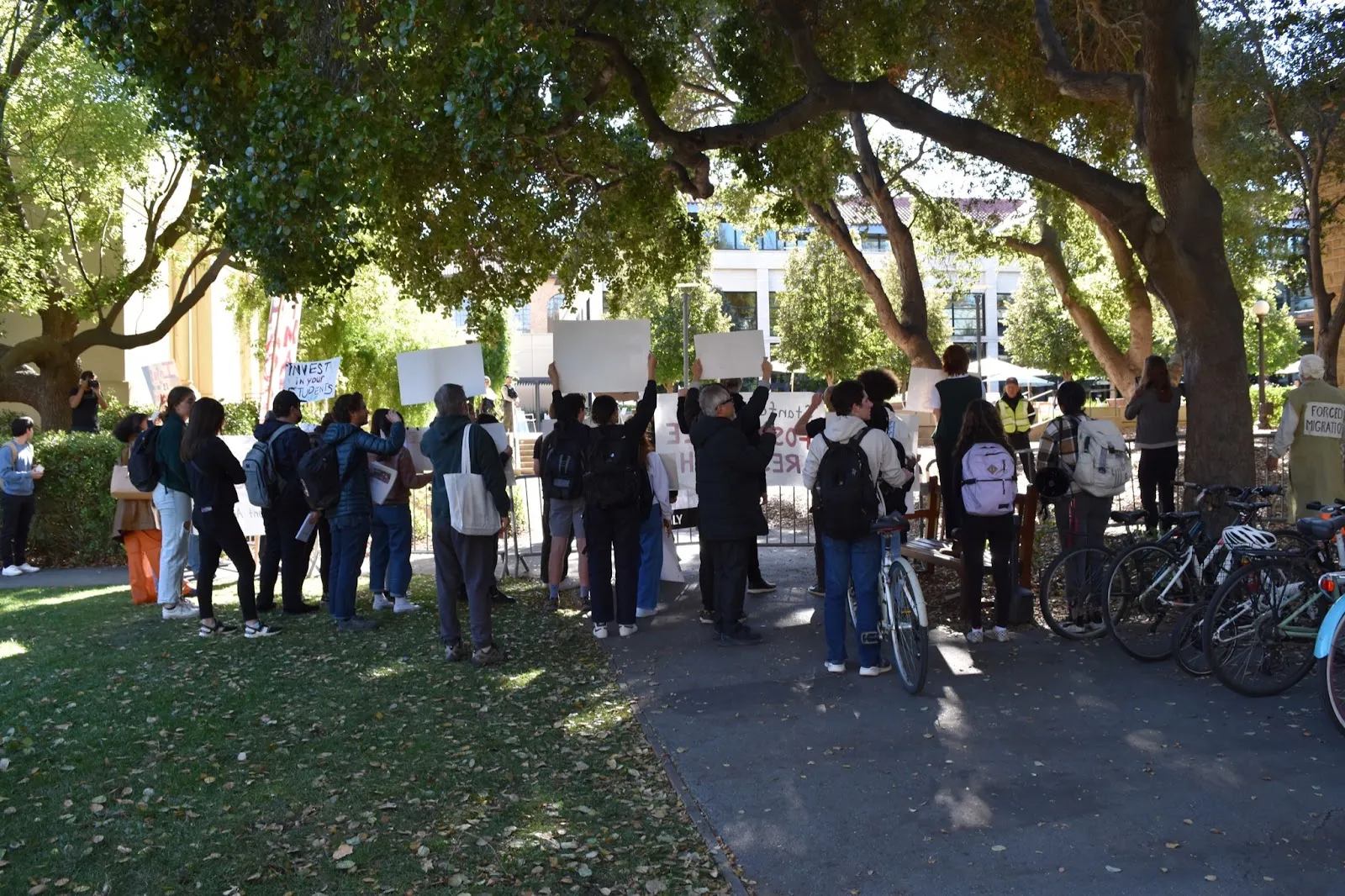Freedom of speech is a hallmark of great universities where honest dialogue and the airing of facts is prized. And so it is disturbing, particularly in an era of Big Lies, that Stanford has taken to suppressing the truth by stifling peaceful protest and discouraging student dissent.
In September, at the opening reception for the Doerr School of Sustainability (which is ironically funded by Big Oil), a cordoned-off “free speech zone” was set up far away from the festivities such that party music drowned out the chants of about 100 protesters, including myself. At a recent Alumni weekend event promoting the Doerr School, security staff ordered me and fellow protesters to stay in a similarly designated zone, thereby preventing us from mingling with alums to pass out leaflets. And two weeks ago, at the Global Energy Forum which hosted ExxonMobil’s CEO at the Hoover Institution, there was such a wide security perimeter — metal barricades patrolled by Sheriff’s deputies — that few forum attendees seemed to even be aware of us loud protesters waving big signs.
Such measures are often undertaken in the name of security. But then why are they being used on campus just recently (previous coverage of campus protests do not mention the practice)? Perhaps “free speech zones” are a tacit admission that protesters are a force to be reckoned with, a sign of their growing influence. Still, if security is the only concern, then why not invite student representatives to present dissenting views at these events?
Meanwhile, Stanford showcased their double standard while hosting the recent Academic Freedom Conference. The institution held an invitation-only conference hosting many conservative panelists in person while relegating the general public and the media to a livestream version of proceedings, an option that was only added after an uproar.
Students and community members are entitled to have a voice in university affairs and campus activities. They have a right to show up and express dissatisfaction and be heard without fear of reprisal. But that sort of support was noticeably absent four weeks ago when the Bechtel International Center warned foreign students by mass email to be “peaceful and respectful” while protesting, lest it affect their immigration status.
And that sort of support is not conveyed by keeping student protesters corralled away from industry-friendly PR events on campus. Stanford officials are perhaps patting themselves on the back for having struck an expedient compromise for handling protest. But having witnessed first-hand how they have chosen to stuff free speech into a tiny box and shove it off to one side, unseen and unheard, I’m ashamed of my alma mater. By zoning out dissent, Stanford’s approach smacks of a police state, not healthy debate.
Ralph King, B.A. ’80, a former reporter for the Wall Street Journal, made a PBS documentary feature about a Stanford D.school course that aired in 2013.
